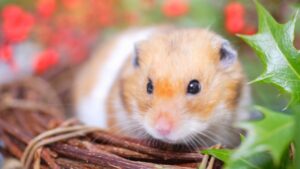
Can You Travel with a Hamster? A Comprehensive Guide
Traveling with a pet hamster isn’t as straightforward as it might seem. It requires careful consideration of your pet’s safety, comfort, and the logistics involved.
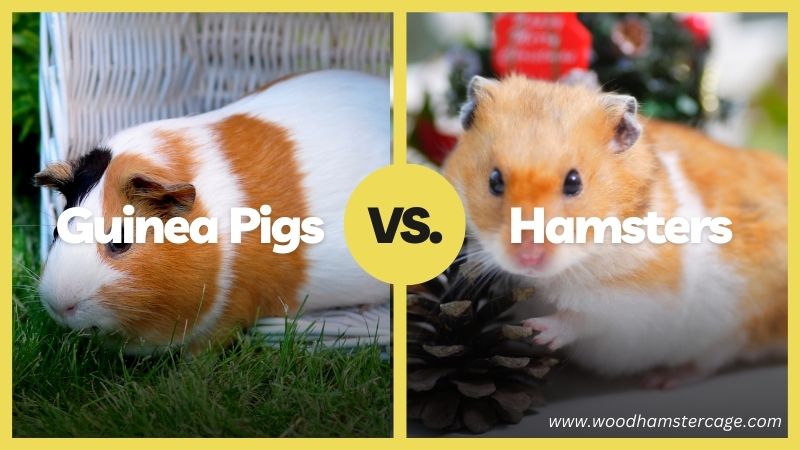
Deciding on a small, fluffy pet can be a bit tricky. Should you go for a hamster or a guinea pig?
It’s easy to mix them up. Both guinea pigs and hamsters are rodents, but they’re more like distant relatives than close family.
Guinea pigs are from the Caviidae family, and hamsters are from the Cricetidae family. It’s like comparing watermelons and apples just because they’re both fruits.
Though they have some things in common, these adorable animals are quite different.
When picking either a hamster or a guinea pig, it’s important to think about their unique needs to see which one fits your life better.
We’ll cover the big differences between guinea pigs and hamsters in this article.
Plus, we’ll give you some questions to help you decide which one will be your ideal pet. Read on to learn all about guinea pigs vs hamsters!
According to Forbes Advisor, small pets like hamsters, gerbils, rabbits, guinea pigs, chinchillas, mice, and ferrets are popular in 6.7 million homes. Hamsters and guinea pigs are equally loved, but they’re quite different. Let’s dive into the main differences between guinea pigs and hamsters.
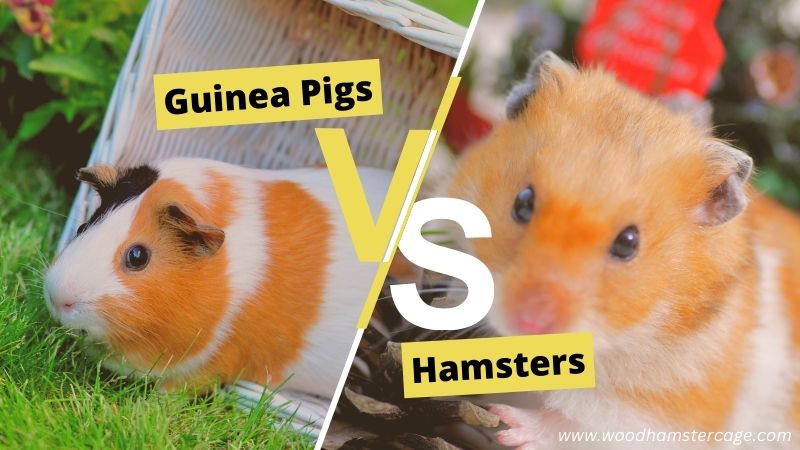
The first thing you’ll notice between hamsters and guinea pigs is how they look. Guinea pigs are rounder and heavier, like little potatoes.
They usually weigh about 1.5-2.6 pounds. Hamsters, smaller and lighter, weigh only 1-10 ounces. Hamsters look more like typical rodents and have small tails, unlike the tailless guinea pigs.
Their body shapes mean they move around differently. Guinea pigs, with their four feet, prefer staying on the ground.
Hamsters have two hands and two feet, often standing on their back legs, holding food with their front paws, and they’re good climbers too!
Thinking about the space in your home is important when choosing between a guinea pig and a hamster. Guinea pigs need a lot more space than hamsters.
Even though guinea pigs are small, they need plenty of room. A guinea pig requires at least 7.9 square feet to live happily, while a hamster needs just 5.3 square feet.
Guinea pigs like having friends, so if you have two, they’ll need even more space to move and play. They need big areas to exercise and private spots to rest away from other guinea pigs and people.
Also, hamsters should live indoors in a cage, but guinea pigs can be happy both inside in a cage or outside in a warm, comfy hutch.
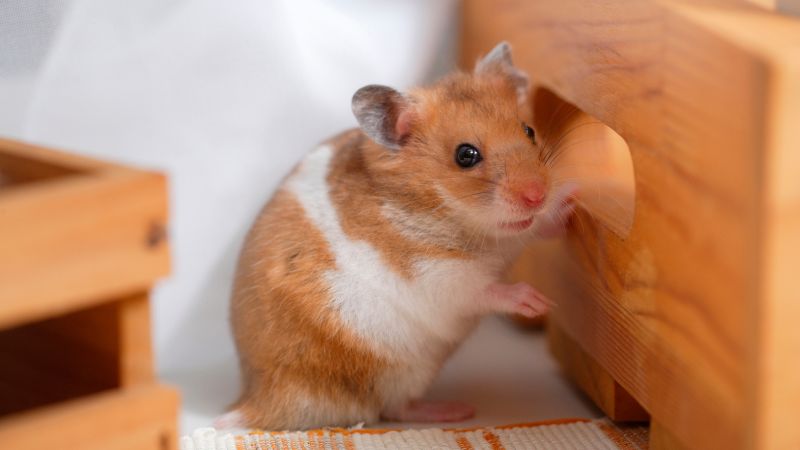
When picking a pet, consider that guinea pigs come in 13 different breeds. On the other hand, while there are around 24 types of hamsters, only five of these are good pets.
Hamsters are mostly quiet, but you might hear the sound of their wheels spinning, especially at night. Hamsters are night creatures and often make noise running and moving in their cages then.
Guinea pigs, though, tend to be noisier. They make a variety of sounds like wheeks, purrs, squeals, and chirps.
These sounds tell you how they’re feeling, like getting excited for food or just wanting some attention. It’s surprising how loud these small, fluffy animals can be!
When choosing a pet, it’s important to think about how long they might live. Losing a pet is always hard, but some pets live longer than others.
Guinea pigs usually live between 4 and 8 years. Hamsters, in comparison, have a shorter life, typically 1 to 3 years. This means a guinea pig is a longer commitment in both time and money.
If you want a pet you can cuddle, it’s good to start handling them gently from a young age. Guinea pigs and hamsters have very different personalities, though.
Guinea pigs are usually more social, affectionate, and friendly. They grew up in the Andes and like having company.
They need attention and often live best with another guinea pig to avoid loneliness.
Hamsters, from the deserts of Asia, are more independent and territorial. They often prefer to live alone and might not get along with other hamsters.
While hamsters can be a bit more solitary, they may not always understand how to behave with people, leading to occasional bites.
This happens less with guinea pigs. Guinea pigs also make a variety of sounds, showing their feelings in cute ways.
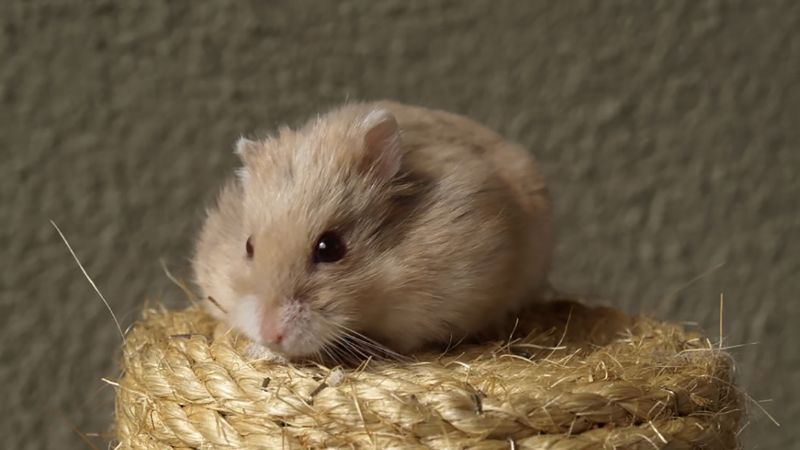
Another major difference between hamsters and guinea pigs is their sleeping habits.
Hamsters are nocturnal, meaning they’re most active at night and in the early morning.
Guinea pigs, however, are crepuscular, meaning they’re most lively at dawn and dusk. But they don’t need much sleep, just about 4 hours a day.
So, your guinea pig will probably be awake and playful when you are.
Hamsters tend to be more temperamental than guinea pigs. They’re smaller and more delicate, which makes them more prone to nipping or biting.
If you have young children, a guinea pig might be a safer choice.
Hamsters and guinea pigs have different ways of starting life. Baby hamsters, or pups, are born without sight, without fur, and need a lot of time to grow.
They have big families too, with 6-12 little ones, sometimes up to 20!
Guinea pig babies are different. They’re born almost ready to go, with fur, teeth, and open eyes. They can even move around right away.
Guinea pig litters are smaller, usually just 2 to 4 babies at a time.
After reading the 9 key differences between hamsters and guinea pigs, you need to consider more details to help you choose the best one for you.
Before choosing between hamsters or guinea pigs, it’s important to ask yourself some questions. This helps you understand how your new pet will fit into your life, ensuring you can give them all the love, time, and care they need.
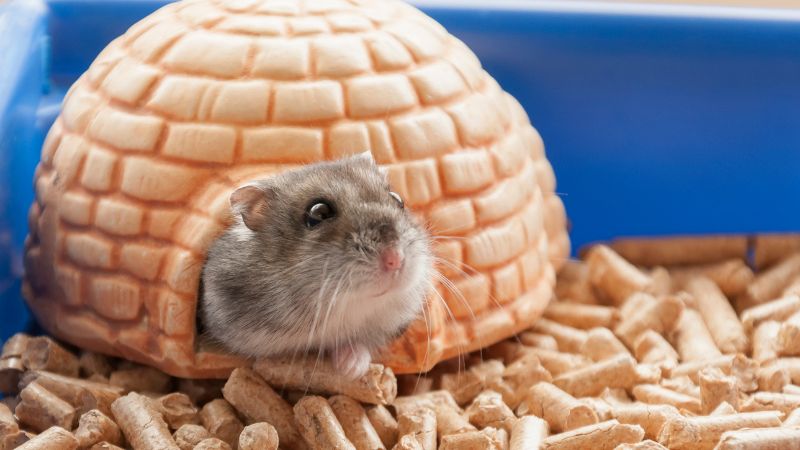
Think about how much time you can give to your pet. Hamsters and guinea pigs need less daily attention than bigger pets like dogs, but they still have their own needs.
Guinea pigs are bigger and eat more, leading to more cleaning. Their cages should be cleaned once or twice a day. Hamsters need less frequent cage cleaning, just a daily spot clean.
Guinea pigs also need time outside their cage daily, ideally in an outdoor run. Hamsters need to explore outside their cage just once or twice a week.
Guinea pigs need fresh food daily, while hamsters can be fed a balanced diet every other day.
Both animals need daily interaction with their owners. Guinea pigs are especially social and enjoy playing with people.
Consider your daily routine when choosing a pet. Are you an early riser or a night person? This affects which pet suits you best.
If you value quiet nights, a nocturnal hamster might not be ideal. If you’re busy during the day, a guinea pig, which needs more attention, might not fit your schedule.
How much space can you provide for a pet in your home? If you’re short on space, a hamster, which needs less room, might be a better choice than a guinea pig.
Hamsters are fine living alone, but guinea pigs enjoy having friends. They need more space to live with another guinea pig.
Make sure there’s enough room for them to move, play, and forage, plus outdoor space for exercise in a grassy area.
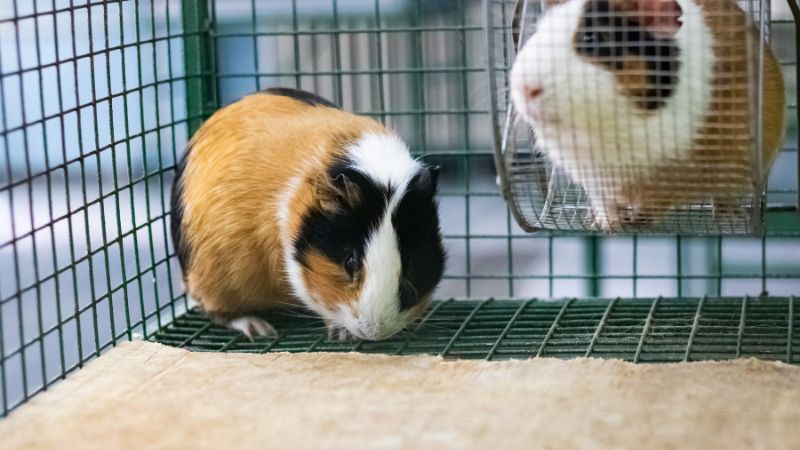
Consider your budget when choosing between a guinea pig and a hamster. Guinea pigs live longer than hamsters, so caring for them over time costs more.
Plus, guinea pigs are social and should be adopted in pairs, doubling the cost of food, vet care, and upkeep.
If you have a limited budget, a hamster might be a more affordable choice in the long run, as they typically cost less than guinea pigs.
Do you enjoy cuddling with pets, or do you prefer a bit of distance? If you love affectionate pets, a guinea pig might be right for you. They’re sociable and usually have a calm temperament.
Hamsters can be more nervous and less inclined to cuddle, though getting them used to gentle handling from a young age can help.
Guinea pigs are generally sturdier than hamsters, so you can handle them with less worry. But be gentle, as their backs are delicate.
Remember, every guinea pig and hamster is unique. Whichever one you choose, give them time to get comfortable with you and build a bond.
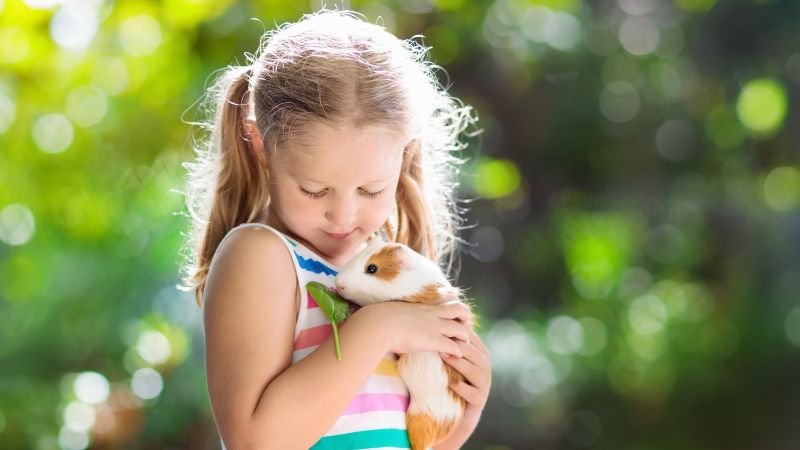
Reflect on the length of time you’re willing to dedicate to caring for a pet. Are you prepared for a lasting commitment, or do you lean towards a shorter-term responsibility?
Guinea pigs typically live up to 7 years, requiring a longer period of care. If you’re open to the idea of taking care of a pet for several years, then a guinea pig could be a fitting choice.
However, if a long-term commitment seems overwhelming, consider a hamster, which usually has a lifespan of just 2-3 years, as a more appropriate option.
Choosing the right pet is a significant decision, especially when it comes to small animals like guinea pigs and hamsters. Each has its unique characteristics and care requirements. To help you make an informed decision, we’ve compiled some frequently asked questions about these adorable creatures.
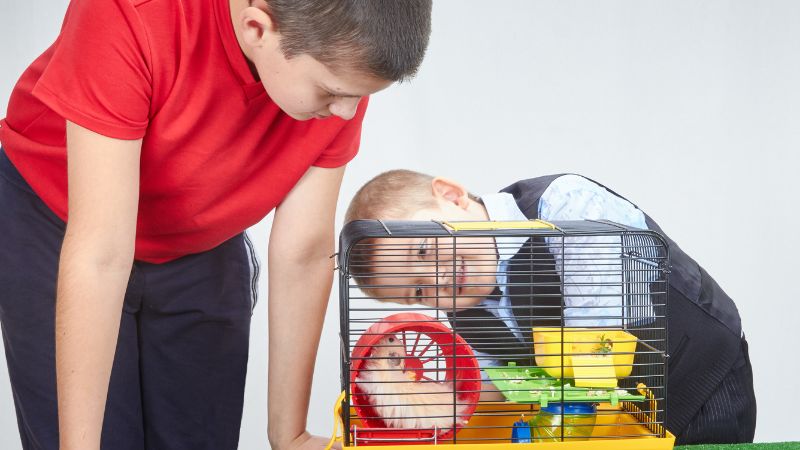
Deciding between a guinea pig and a hamster for a child depends on the child’s age, responsibility level, and the amount of time they can dedicate to pet care.
Generally, guinea pigs are more sociable and less likely to bite, making them a good choice for younger children.
Hamsters, being nocturnal and more independent, might be better for older children.
While it’s possible to keep guinea pigs and hamsters in the same room, it’s important to consider their different needs.
Hamsters are nocturnal and may disturb the guinea pigs’ sleep.
Additionally, their cages should be kept separate to prevent stress and potential aggression.
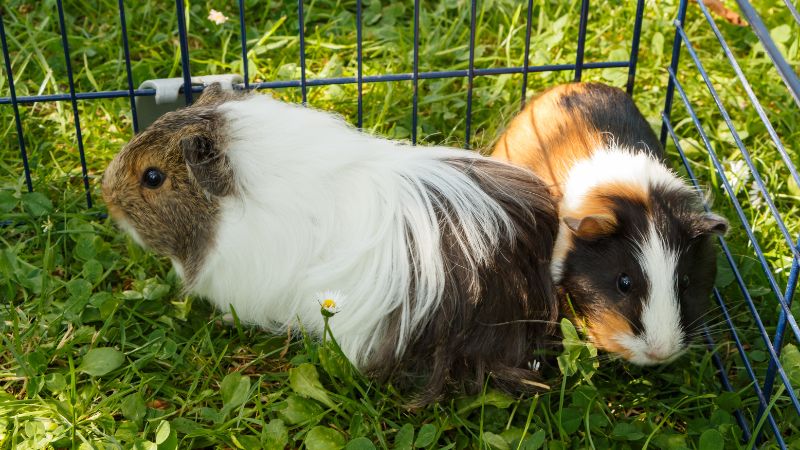
Guinea pigs are highly social animals and thrive in the company of their kind.
Keeping just one guinea pig can lead to loneliness and stress.
It’s recommended to have at least two guinea pigs for their emotional well-being.
Generally, guinea pigs are known to be more friendly and sociable compared to hamsters.
They are less likely to bite and enjoy human interaction, making them a great companion.
Hamsters, while also friendly, can be more territorial and prefer solitary environments.


Traveling with a pet hamster isn’t as straightforward as it might seem. It requires careful consideration of your pet’s safety, comfort, and the logistics involved.
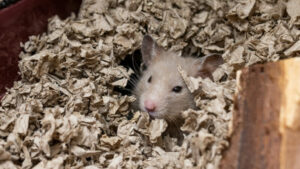
Finding the best hamster cage for Syrian hamster is crucial, as these curious, low-maintenance, and independent pets thrive in the right environment. The primary concern

When I began, the task of selecting essentials for a natural hamster habitat was daunting. To ease this process, I’ve assembled an exclusive set of

Have you ever wondered, “Are hamsters happier in bigger cages?” Generally YES. It’s a question that might seem straightforward, but there’s more to it than
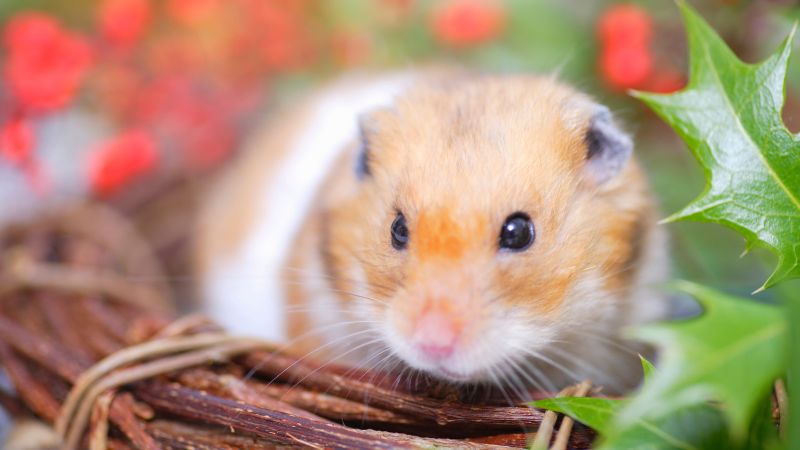
Traveling with a pet hamster isn’t as straightforward as it might seem. It requires careful consideration of your pet’s safety, comfort, and the logistics involved.

Finding the best hamster cage for Syrian hamster is crucial, as these curious, low-maintenance, and independent pets thrive in the right environment. The primary concern

When I began, the task of selecting essentials for a natural hamster habitat was daunting. To ease this process, I’ve assembled an exclusive set of

Have you ever wondered, “Are hamsters happier in bigger cages?” Generally YES. It’s a question that might seem straightforward, but there’s more to it than
Copyright © 2025 woodhamstercage. All Rights Reserved.